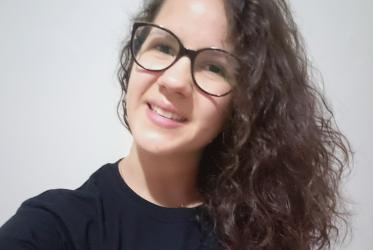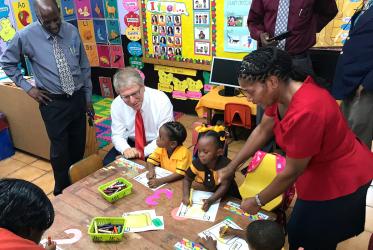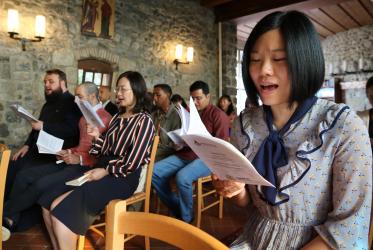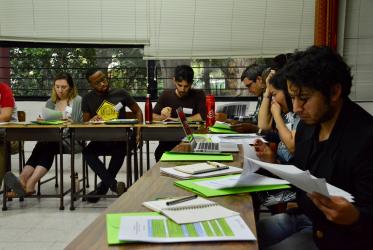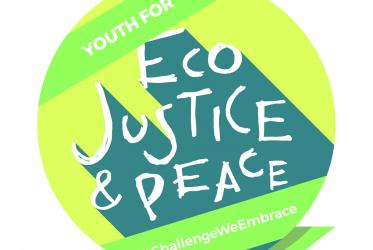Displaying 1 - 20 of 42
28 March 2024
WCC mourns the death of Julio de Santa Ana
20 April 2023
New student body at Bossey Ecumenical Institute “a source of joy”
14 September 2020
Larissa Aguiar Garcia: "We're opening a safe space”
26 September 2019
New academic year underway at Ecumenical Institute, Bossey
18 September 2019
WCC Eco-School encourages youth to become eco-ambassadors
08 November 2018
Jamaica vantage point for Caribbean ecumenism
05 October 2018
New students welcomed at WCC Bossey Ecumenical Institute
13 September 2018
Diakonia: “a tool to reach abundance of life”
24 July 2018
"We have our work cut out for us"
10 August 2017







